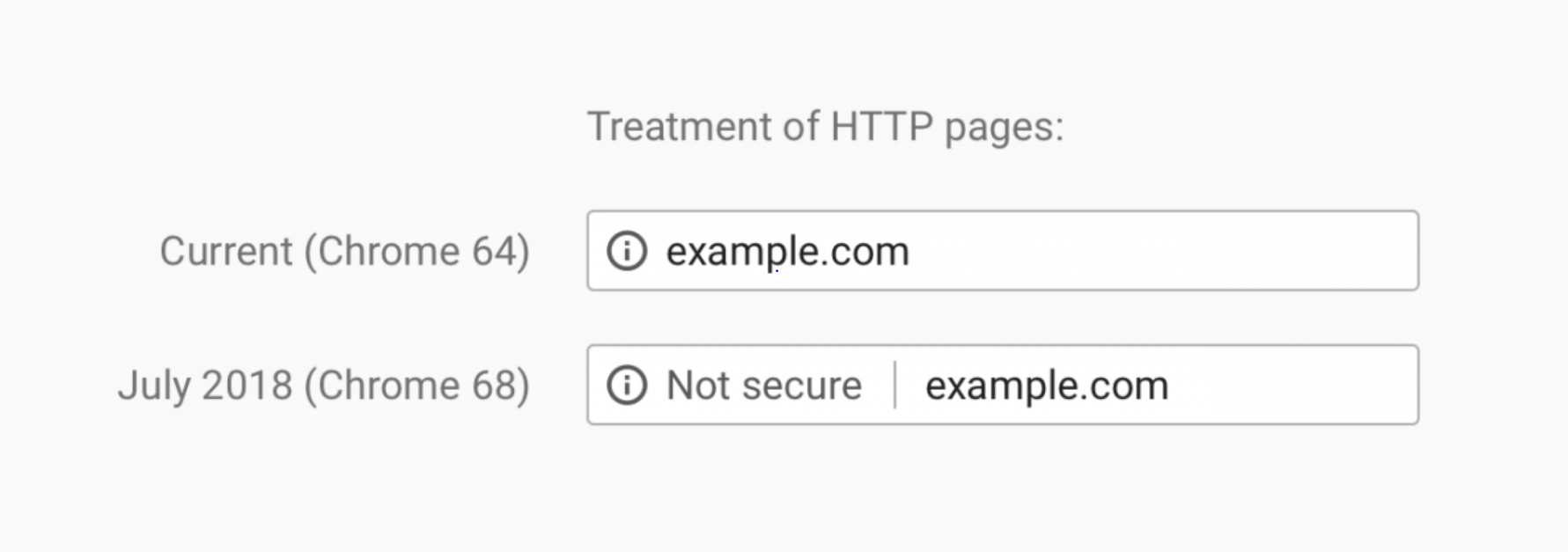In February 2018, Google announced Chrome 68 will arrive in July and it will mark all HTTP pages as Not secure. It has been a long-awaited action to an encryption by default internet.
Even though everybody talks about it, there are still a lot of websites that don’t see the importance of an HTTPS.
HTTPS – what is it?
HTTPS is the stronger brother of HTTP, the one that protects everything. S stands for secure, as it defends the integrity of data exchange over a network. It uses encryption and decryption for requests and answers between clients and servers. Encryption happens through TLS (Transport Layer Security) or SSL (Secure Sockets Layer).
HTTPS avoids Man In The Middle Attacks (MITM)
HTTPS makes sure all information transmitted between a client and a server can’t be ambushed by a MITM attack. A MITM attack means two directly involved parties are monitored and mislead by a third party without consent.
HTTPS is important for all websites
HTTPS is not important only for the businesses or other websites with sensitive data. Many think HTTPS is optional, but the rule applies to all blogs and websites that don’t particularly collect data.
Many features are HTTPS exclusive
Many old APIs will be updated to ask for security contexts to execute. The reason is simple: some old features are dangerous for security and nobody is comfortable with them anymore. HTTPS will influence all the old and new APIs.
Browsers warn users to avoid insecure pages
Starting with Chrome 62, users are repressed from using insecure websites. The Not secure warning is displayed for all HTTP websites in incognito, no matter the information. It is probably because users already expect better security when going incognito.
HTTPS has SEO advantages
Ever since 2014, Google said HTTPS will help the websites in SERP (Search Engine Result Pages) ranking. It was just a heads up at the time, but now it has great importance.
This means you can have a quick boost in ranking when moving to HTTPS, especially if competition doesn’t.
Closing thoughts
HTTPS is no longer an option. All types of websites must implement the HTTPS.
Do you have any questions about this change? Let us know how we can help you!




